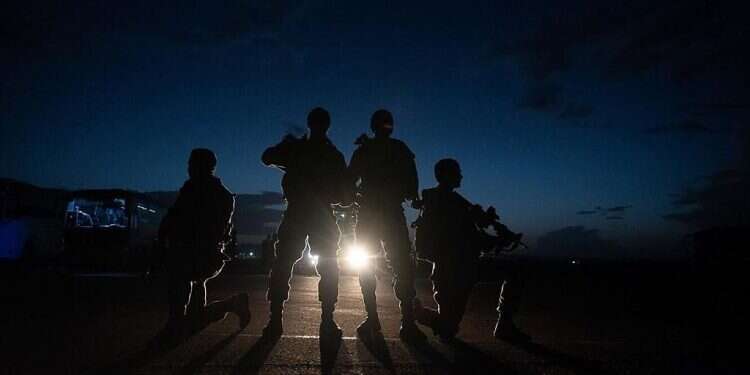The botched commando raid in Khan Younis was a case of the writing being on the wall. There were enough warning signals – but because of the quality of the force selected for the mission, the professionalism of its soldiers, and its perfect record, no alarm bells were set off.
Even when changes were demanded as a result of the problems the special forces encountered in the past (and it did encounter problems, albeit few), they were never implemented. The fact that the team members managed to extricate themselves from crisis situations time after time led to the belief that their approach worked and there was no need to fix what wasn't broken.
Follow Israel Hayom on Facebook and Twitter
But only in hindsight, after the November 2018 operation that resulted in the death of Lt. Col. M. and considerable harm to Israel's security, was there an in-depth probe. A series of investigations led no stone unturned. Everything was inspected, combed though, broken down, and reassembled. The purpose wasn't to find whom to blame, but to understand what failed and why to avoid similar failures in the future. The army understands the importance of its special ops forces, and the goal was to improve.
On the tactical level, there were a number of problems with the operation. The team's behavior aroused suspicion, a matter of defects in basic professionalism. The Hamas operatives who stopped them began asking questions. In the past, similar teams had managed to get out of similar situations. Not this time. The Hamas operatives grew suspicious. They were quickly joined by more of their people.
The questioning became rougher, verging on violence. After about 45 minutes the commander, A., realized he had to take action, and he used a second in which the Hamas operatives were distracted (by M., who was killed) to shoot them.
Lt. Col. A. fired from the team's vehicle and killed three Hamas operatives. One of the shots went astray, killing Lt. Col. M. A. then ran after the Hamas members who had taken M. to their own car, killed them, and rescued his comrade. The team loaded M.'s body into their car and sped off. Commander Y., who oversaw the entire operation, led the helicopter extraction with an exceptionally cool head. All the commandos who took part in the mission have been recommended for citations of merit, while A. and Y. have been recommended for more prestigious medals.
The rescue itself went off without a hitch. The initial decision not to drive of stemmed from concern that the team might run into another roadblock – the first shots stirred up the entire Gaza Strip, and there was a risk that the forces might not make it out alive or be taken prisoner. In those critical moments, years of training and preparation paid off; everyone sitting in the command post held their breaths for the three minutes that Y. refused to allow a Yassur helicopter to take off from a populated area of Gaza until he checked and re-checked that all the IDF fighters had been evacuated.
The fact that all the soldiers made it back to Israel was the result of their professionalism and the cool heads of their commanders. Obvious as it may sound, the basic lesson from the incident is this: that the army must not compromise on the quality of commandos in special ops units or on their training. However, the incident revealed that training must be adapted specifically for every operational team to create unity and integrate the fighters with different areas of specialty.
It also became clear that it is necessary to assess all aspects of a mission in depth and ahead of time, even those that seem obvious. The organizational changes made to the special ops branch will also be reevaluated, and issues involving the chain of command – including tighter routine control by the special ops headquarters as well as while the missions are being carried out.
The special ops personnel have already returned to duty. But the Khan Younis failures provide the secret and vital branch of the IDF with a rare opportunity to reinvent itself.
Because the special ops activity is so deeply rooted in principle, so unique, and so irreplaceable, Israel does not have the privilege of forgoing it. The opposite – despite the Khan Younis failure, and maybe because of it – special operations must be stepped up. For Israel to stay a step (and more) ahead of its enemies (in Gaza and on other fronts), it needs to carry out operations and special missions aplenty some of which are and will always be highly dangerous.
And one last point: everyone who was part of the chain of command for the Gaza operation has been sullied, naturally. Some of them decided to leave the army. Others have stayed. They all took part in a courageous probe that looked into their own individual failures out of a genuine desire to discover the truth of what happened and what can be improved going forward. No one pointed the finger at anyone else, a rarity here, which is another indication of the unusual level of these people and their understanding of what is on the line – not their personal concerns, but the security of the nation in the deepest and truest meaning of the word.




